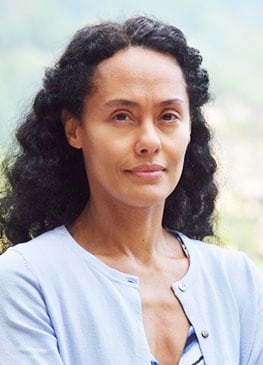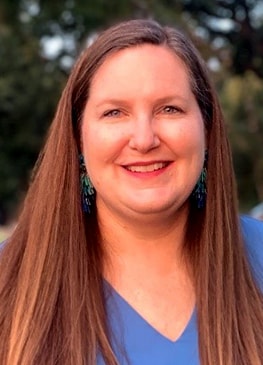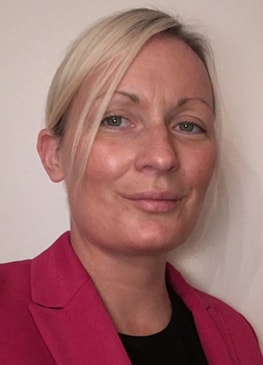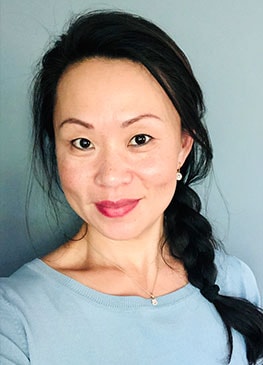Read the full interview here
-

Q. Where did you grow up and what were some important early influences for you that really shaped who you are as a leader today?
A. I was born in west Texas. My dad was a drilling engineer with an oil company, and we lived in Midland; Monahan; Andrews; Odessa; Corpus Christi, Texas; New Orleans, Louisiana; and Huntington Beach, California, all before I was ten years old, when we moved to Houston, Texas.
You can assume rightly that living in west Texas is a very different culture than on the coast of California. That had a real influence on me as a person and eventually as a leader, in that it taught me how everyone is different and how getting to know people for who they are really matters. We can all come from different places and be different but we can have a lot in common, as well.
-

Q. Were you in leadership roles early on?
A. My first real leadership role was in playing sports in middle school and high school. I played fast-pitch softball very competitively, traveled around the state and country with our team.
As the catcher, you really serve as the on-field leader for your team – directing your defense, calling plays and pitches, and making sure that the team operated effectively on the field. That was a really natural place for me.
In college, I had some leadership experience working in a sorority and other student organizations. But where I learned the most about being a leader was working at companies that faced a crisis. And the most important lesson I learned is that there is never a reason to panic.
Problems are always solvable. It may be hard, you may need to break them down into subsets, you may need external help, you may need to bring people into new roles, and sometimes you need to change people in roles. But problems are solvable. It’s about going at them, keeping your values in mind as you approach them, breaking it down into action plans, and then following through.
-

Q. Was there a moment in your career when you felt like you made the jump from manager to leader — not in terms of your title but in terms of your mindset?
A. When I worked at Continental Airlines about 20 years ago, I was asked to take on a project that wasn’t necessarily going well at the time. It was the first time I realized that I couldn’t accomplish the mission of the project on my own.
There was no amount of work that I could do by myself where we were going to be successful. That was a pivotal moment because I realized that I had to work through others to get things done, and that meant leading the team for managing the day-to-day work.
-

Q. What’s the best mentoring advice somebody has ever shared with you?
A. One of the best pieces of advice someone gave me when I started a new role was, “You don’t have to impress us in your first days here. You already did that. That’s why we hired you. What you need to get out of the early time you’re here is building a plan for what you want to accomplish.”
It was profound because before that, I had started a number of new jobs, but I’d never been given the advice to listen more than you talk, learn more than you interject, and to really absorb the organization and get to know people before you formulate a plan.
That has stayed with me in that I like to ask a lot of questions and understand the facts and connect the dots before I jump in with a plan. I always say to people when I start working with them, “Never take my questions as doubt in what you’re saying. It’s my desire to connect the dots and really understand deeply the topic that we’re talking about to assimilate the data so that I can add value to the conversation.”
-

Q. Do you feel like you’ve encountered any headwinds in your career because you’re a woman?
A. There have been many times in my career when I was the only woman in the room. Anytime you’re the only person representing a certain perspective, that’s a headwind. I found that I was often underestimated. But I learned to not ever let that stop you from being who you really are. Don’t be intimidated. Don’t sit there taking notes. Don’t be afraid to dive in.
One piece of advice I give to other women is, no matter if you’re the only woman in the room or you’re one of a hundred women in the room, your voice, your thoughts, your perspective matters. You have something valuable and unique to bring to the conversation. You never have to speak up just for the sake of speaking up, but you always have something unique to add, and don’t forget that, even if the situation is intimidating or hard.
-

Q. Can you talk about the art of compartmentalization? How do you keep things in perspective when you’re facing many pressures?
A. My perspective on this draws very deeply from my early experience as a parent. Our oldest son, who’s very healthy now and 30 years old, had open heart surgery when he was eight months old. For days on end, my husband and I slept in bunk beds outside the ICU while my son was in a hypothermic coma that the doctors put him in to reduce his heart rate, because his heart was just beating too fast following his open-heart surgery.
As you can imagine, it was an incredibly scary, terrifying experience. I try to draw on that to remember that a job is in fact just a job. I care deeply about the people who work here, and the challenges that we have faced have absolutely sometimes kept me up at night. But I also try to remember how lucky I am and to put things in perspective, because that really challenging experience has taught me what really matters in life. So you focus on areas where you can do a really good job and not let the job own you.







